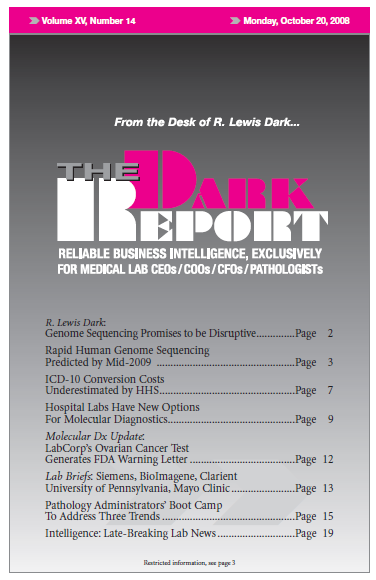CEO SUMMARY: Laboratories that offer molecular assays continue to see strong growth in four areas: oncology, hematopathology, infectious diseases, and personalized medicine. Further, a new generation of molecular testing systems and analyzers is coming to market which will make it easier for even smaller community hospital laboratories to establish and perform molecular tests that are …
Hospital Labs Have New Options for Molecular Dx Read More »
To access this post, you must purchase The Dark Report.


